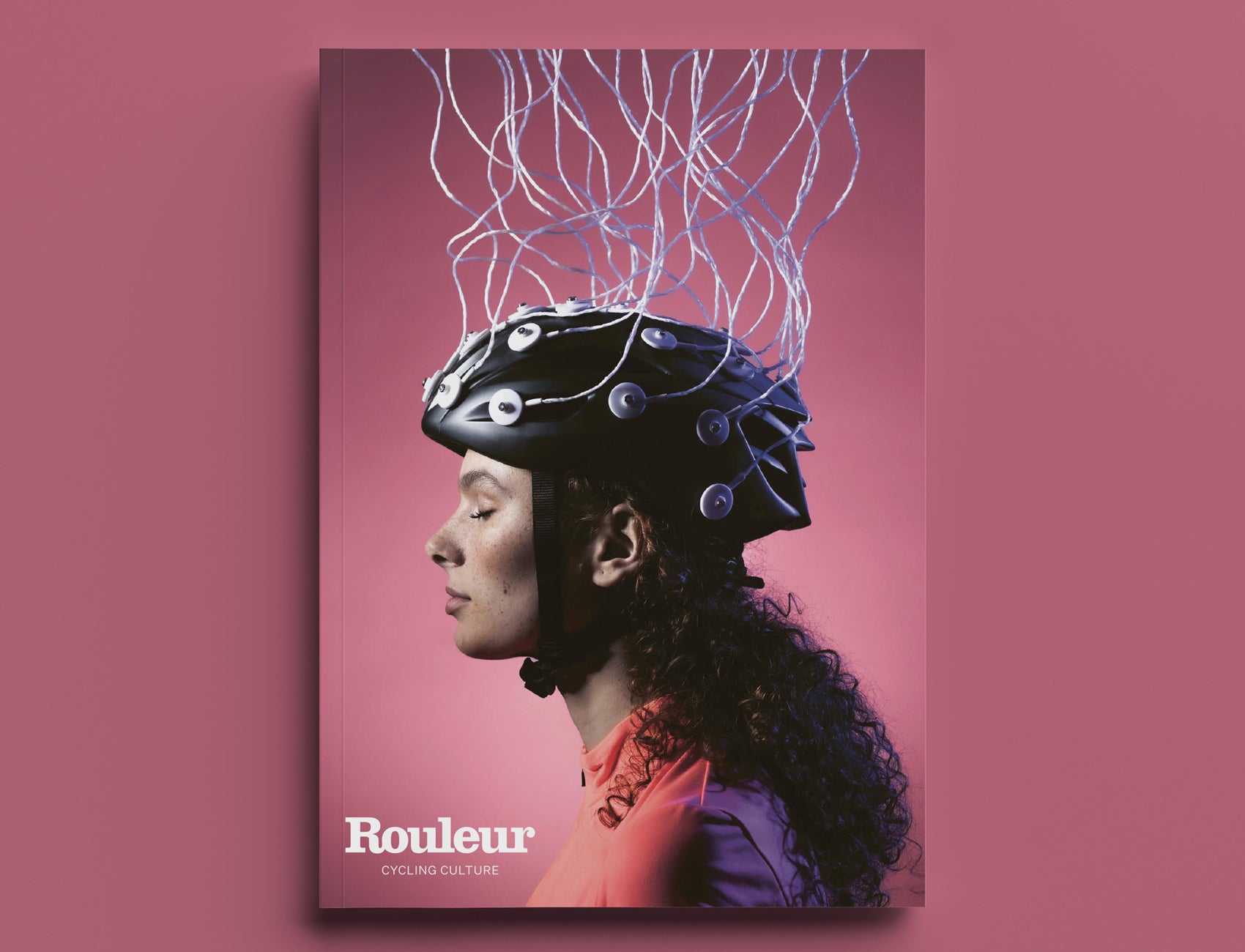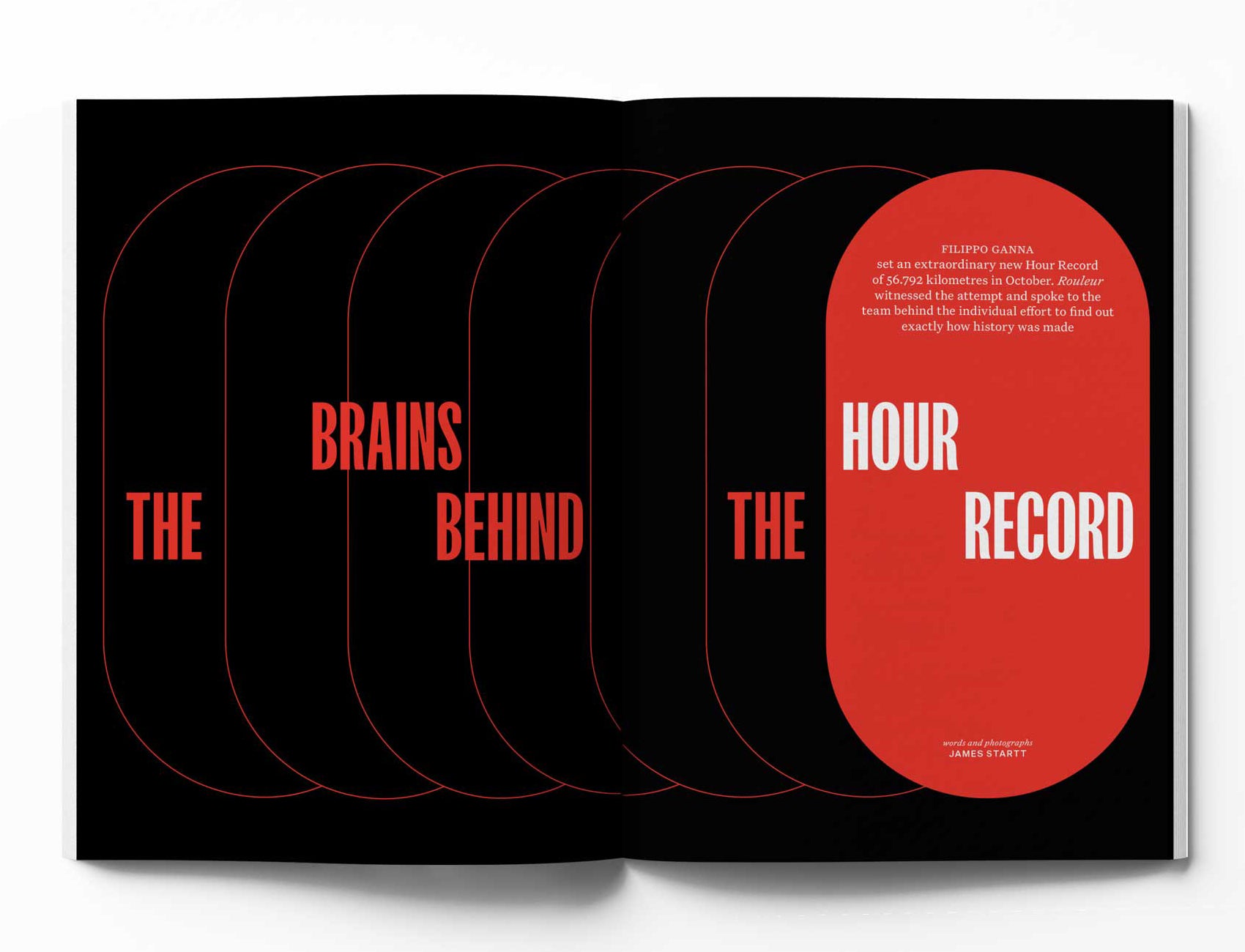The best thing about road racing is that a clever rider can beat a stronger rival. Unlike a marathon, where the fastest runner tends to win, followed by the second fastest runner, then the third, and so on, road racing happens first in the realm of the physical, but just as importantly, in the realm of the mind. Physical strength is the price of entry, but the best road races happen when teams, managers and riders execute strategic and tactical plans, rather than relying on brute force. (Tadej Pogačar used to be able to do the latter, but even he got found out in last summer’s Tour de France, where Jonas Vingegaard looked barely stronger than the Slovenian, but rode a much cleverer race and won by three minutes.)
Cycling’s relationship with our brains goes much further than working out tactical plans to win road races, however. Cycling, sporting and otherwise, broadens the mind - each bike race is a lesson in geography, meteorology and human nature; every time we go for a ride we explore different cultures and landscapes. It takes us to new places, and our journeys on the bike are much more than getting from point A to point B - they are everything in between.
Bike riding time is also excellent thinking time. Though it’s important to stress that cycling is not a replacement for therapy - it can enable us in many ways, relax us, calm our minds and keep us physically fit, plus it’s also a lot of fun, but problems that exist before a ride still need to be solved off the bike - a long ride can quieten the noise in our minds.
So what’s in the mag? We have a big interview with the joint record-holder, with Eddy Merckx, for winning Tour de France stages, Mark Cavendish. The Manxman has been open about his struggles with mental health, and has experienced episodes of depression. He’s also a prime example of how bike races are won with a strong mind, not just strong legs. Of course, he’s a physically gifted human being, but his power output and engine are not outstanding in comparison with many other cyclists in the WorldTour. However, he has applied a level of focus and willpower to his career that has elevated him into the position of the greatest sprinter ever, and a generationally influential rider. He was a guest of LeBlanq, creators of bespoke cycling and culinary experiences in exotic locations, at their recent trip to Ibiza, where Amy Sedghi interviewed him about his approach to life and the sport, in between enjoying sets by Pete Tong and lemonade made at Calvin Harris’s lemon farm.
James Startt caught up with Peter Sagan at the Canadian WorldTour races at the tail end of the 2021 season, and sent us a collection of entertaining portraits (Sagan is good at being photographed) along with an interesting interview about how to balance a career as a professional athlete and trying to live a normal life. For Sagan, normal is not the same as the rest of us, and James has been struck over his encounters with the Slovakian about how busy he is. In between bike racing, training and travelling, he has sponsor meetings and business meetings to juggle, as well as being available for fans, and being a father to his son Marlon.
Usually the cycling journalist’s job is to do the interviews. However, we turned the tables on Rupert Guinness, one of the doyens of the Tour de France press room, who following four decades of covering bike races, developed a side hustle of his own in doing long distance endurance events and in doing so brought awareness of mental health problems to his readers and followers. Guinness has been covering bike races since the early 1980s, his career arc starting at the same time as the wave of Australian racing talent at that time - Phil Anderson and Allan Peiper - then following Robbie McEwen and Stuart O’Grady through the 90s and 2000s, then Cadel Evans and on to Richie Porte and more. Kieran Pender chatted to Guinness at - where else - the Wollongong World Championships, to find out how he started tackling endurance events like the India-Pacific Wheel Race in 2017, and graduated to an attempt at the Race Across America. Guinness has been honest about a long battle with bulimia, and his long rides have enabled him to confront some deeply personal questions.
Also in the magazine: Andy McGrath interviews Veronica Ewers, the EF-Tibco rider who only took up cycling in her mid-20s but in her first full year as a pro in 2022 achieved top 10s in the Tour de France Femmes, Tour de Romandie, Itzulia and Women’s Tour; Rachel Jary explores the issue of cycling’s problematic attitude to weight and body composition; high tea with Lachlan Morton; Art Cycle looks at a classic image by Henri Cartier-Bresson; James Startt digs into the work that went on behind the scenes into Filippo Ganna’s recent Hour Record; James Witts looks at the role of confidence in WorldTour racing; Taylor Phinney tells us about his creative collaboration with Cinelli; Fergus Crawley extols the virtues of zone 2 rides to help mental health; we meet Safiya al Sayegh, the first female rider from the UAE to take part in the World Road Race Championships; Emilio Previtali tells us about finding his ikigai on a long ride in the Dolomites; and much, much more.










































